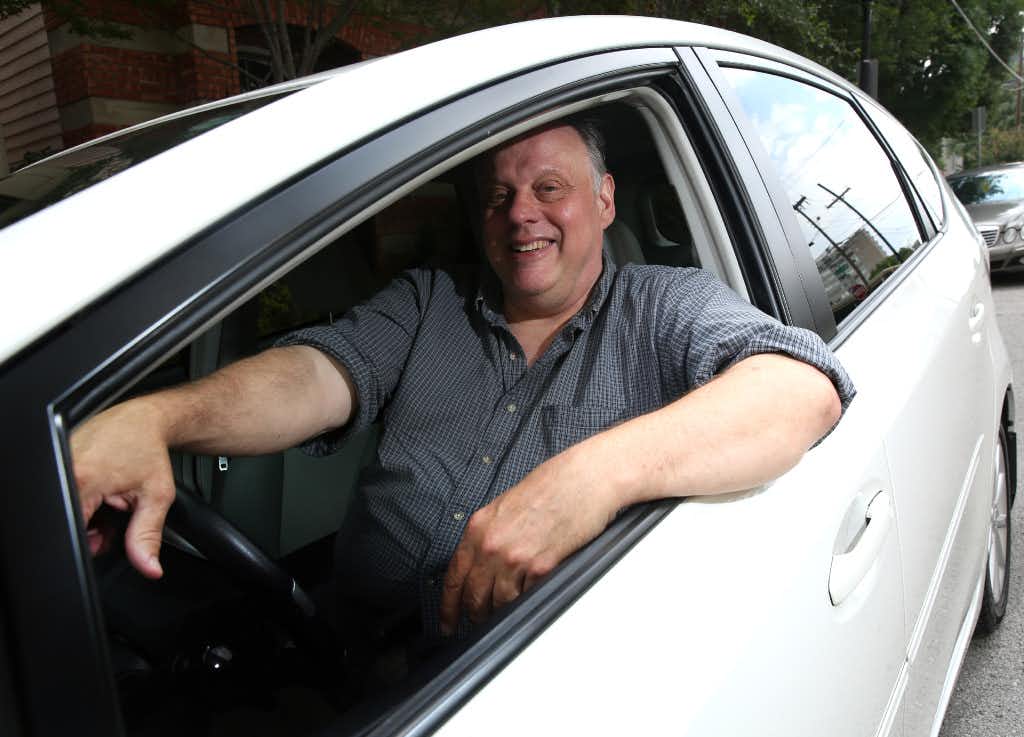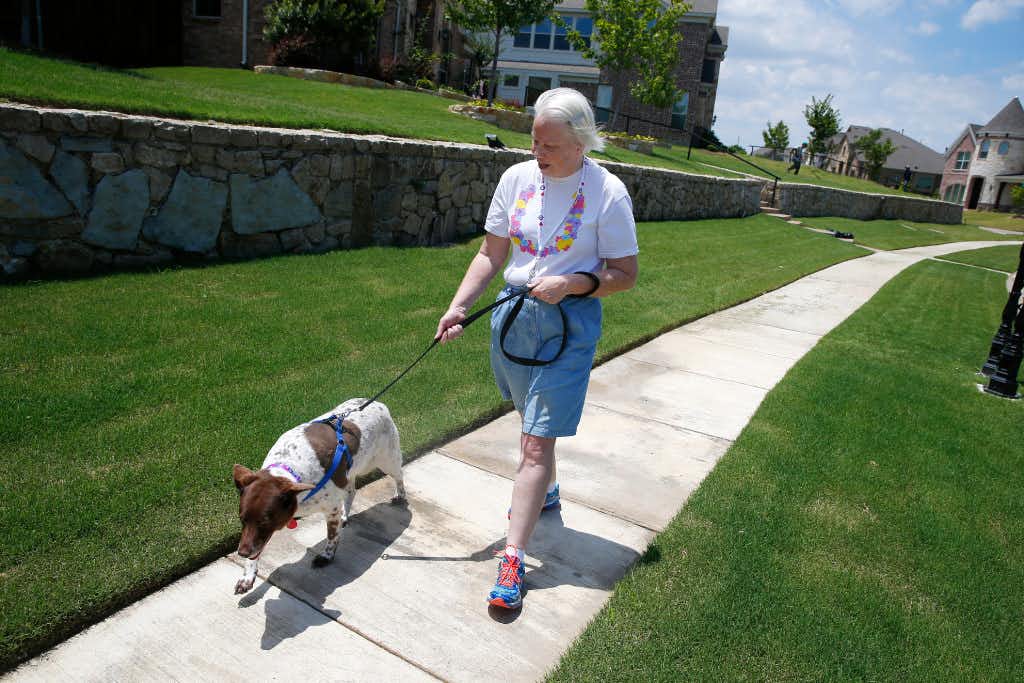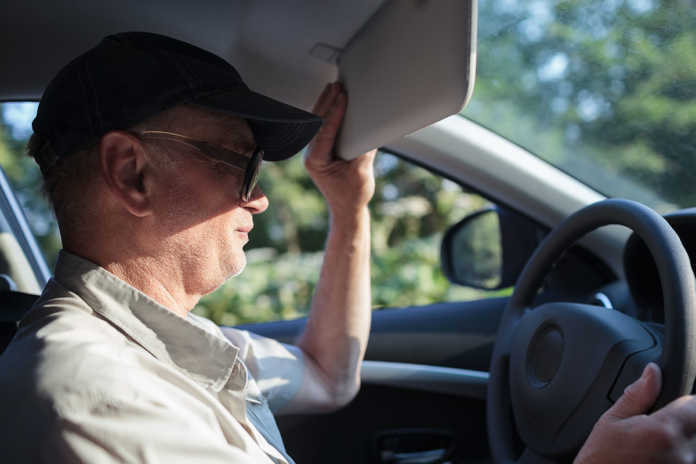Carmen Ramirez, 63, of Dallas has hosted guests from Romania, Germany, Saudi Arabia and China in her home by serving as an Airbnb host.
Cari Cook, 64, of Plano has made dozens of new human and canine friends by pet sitting for Rover.com.
And as a Lyft driver, 61-year-old Frank Cooney of Richardson advises out-of-town visitors on the best places to eat or visit as he takes them from place to place.
While they all want to earn extra cash, these workers see an added benefit to taking part in the sharing economy: keeping engaged and active. At an age when many older adults feel their worlds shrinking — as they retire from work or after kids leave home — these seniors say their worlds are expanding.
They’re meeting new people, providing needed services and putting their wisdom and experience to work.

“Having guests connects you more to the world and to having a purpose in it,” says Dia Sousa, another 55-plus Airbnb host in Dallas. “The sharing economy has been a real gift to the baby boom generation.”
Ramirez puts it this way: “I just sit at home, and these super interesting people come through my life.”
The digital workplace
The sharing economy, also known as the gig economy or the online platform economy, uses the power of the internet to connect customers with providers who have services to offer or owners with property to sell or rent.
Seniors are key players in this new employment segment. An April 2015 report from PricewaterhouseCoopers estimated that among Americans 55 and up, 25 percent consider themselves providers in the sharing economy, much higher than the overall average of 7 percent for people of all ages.
Uber estimates that one in four of its drivers is 50 and older. Rover.com reports that thousands of its pet sitting providers are seniors. And at Airbnb, hosts 60 and older represent the fastest-growing demographic in the U.S., with women hosts 60 and older earning the highest percentage of five-star ratings (top ratings) than any other age group.
“Senior women truly are ‘golden’ hosts of the Airbnb community in the United States,” an Airbnb report says.
Sharing economy businesses are noticing the value of older workers, and some are actively courting the demographic. In 2015, for example, Uber partnered with AARP’s Life Reimagined program to recruit seniors.
“Older drivers can connect with a wider variety of people because they have a lot more life experience,” says Aaron Fox, general manager of Lyft Dallas-Fort Worth.
There is a downside, of course: Workers in the sharing economy don’t get benefits such as health insurance, and most don’t earn as much as those working in full-time positions. (An Airbnb spokesperson reports that hosts in Dallas, ages 60 to 90, typically earn about $8,300 annually.) Plus, income can fluctuate, sometimes wildly, as demand surges or wanes.

The right fit
For those seniors who already have savings, a pension or other income that covers basic needs, the on-demand economy can be a boon.
Dog sitter Cook, who’s retired from the military, meets her living expenses with her government pension. The on-again, off-again aspect of dog sitting suits her.
“I like to be busy two or three weeks out of the month,” she said. She marks herself as “unavailable” for those weeks when she plans to travel or needs a break.
After retiring from her second career as a technical writer, Cook started getting restless after a couple of months, so she signed up for Rover.com. The money she’s earned so far covered a big dental bill and paid for a sightseeing trip to Ruidoso, N.M. “Without any work, I’d be bored,” she said. “Instead, I play with dogs.”
Cook doesn’t have a dog of her own; that’s not unusual among Rover.com’s older sitters.
“Caring for dogs through Rover allows them to enjoy the companionship of a dog while still having the freedom to pursue their other interests, like travel and visiting family,” says Rover spokesperson Brandie Gonzales.
Says Cook: “They’re like grandchildren. I can enjoy them, and then send them home.”
Driving for Lyft allows Lee Robertson, 57, of Mesquite to take advantage of slow times in his primary business, architectural photography.
“Sometimes I work [as a photographer] for two weeks straight, with no days off; then I might have a week without any work,” Robertson says. During slow times, he drives for Lyft.
Maximizing their assets
The sharing economy also lets seniors make use of assets that might otherwise gather dust. An extra car in the garage can be rented out via Turo.com. An empty nester can put unused space at home to good use via Airbnb. Some 41 percent of senior hosts reported that the extra income allows them to stay in their homes.
“I’m the third generation in my family to live in my home, and the Airbnb income makes a huge difference for me,” says Souza, who also works part-time as an adjunct professor at Collin College. “It covers my property taxes, insurance and most repairs.”
Souza, who lives two blocks from lower Greenville Avenue, says she feels safe because she intentionally designed her Airbnb web page to attract conscientious travelers who want a quiet sanctuary, rather than the “get-drunk-and-stupid crowd.” So far, the worst incident she’s handled was a spilled bottle of Champagne in a guest room.
Among the 30 million stays booked through Airbnb in 2016, instances of significant property damage occurred only .009 percent of the time, according to spokeswoman Laura Rillos.
Airbnb host Ramirez only accepts guests who have earned high ratings from other hosts. In the two years she’s hosted so far, the biggest problem was a guest who stayed 15 days. “I just got tired of him,” she says. She believes her life experience being a mother of two sons allows her to solve problems and make guests feel comfortable. “I try to provide the experience I would like if I was staying somewhere,” she says. “I’d have questions like, ‘Where do I park? Am I at the right place?’ I try to make all that easy.”
Recognition and rewards
All the seniors interviewed say they appreciate the chance to help others by way of the sharing economy.
“It’s amazing, all the different calls you get,” says Kay Thomas, 61, a retired loan officer and driver for Lyft. “One day, I took somebody to dialysis; another day, I picked up a man who needed a ride to the hospital for physical therapy for his knee. This way, he doesn’t have to hassle with parking and he’s dropped off at the front door.”
She also often gets words of thanks from female passengers who are more comfortable with a woman driver, from couples who are grateful to enjoy a night out without fighting over who will be the designated driver, and from travelers who appreciate her recommendations for places to eat or to visit.
“That’s my favorite part of the job,” she said. “I get to be an ambassador for Dallas.” Plus, her age is an asset. She believes it commands more respect, averting some potential bad behavior from riders. “I’ve perfected that eyebrow raise,” she says.
Lyft driver Cooney has also benefited from his age. He turned to driving after his job in the insurance business was eliminated five years ago. He was getting nowhere sending out resumes.
“Nobody wanted to hire me,” he said. “Employers thought I had too much experience or I’d want to earn too much.” But he could go to work immediately as a driver, starting with Uber and now with Lyft.
The maturity that scared off other employers proved an advantage as a Lyft driver. Cooney says he’s a safer driver because experience taught him how to anticipate what other drivers are going to do. And he’s willing to start early, at 5 a.m., to take advantage of fares heading to the airport, a shift that some younger drivers might be inclined to skip.
“In my 20s, I drove a taxi briefly in Dallas,” he said. “I didn’t have the discipline to get up early back then.”
Now, he says, “I can’t imagine going back to the cubicle world.”
This article originally appeared in the Dallas Morning News on July 6
Written by Mary Jacobs, Special Contributor



